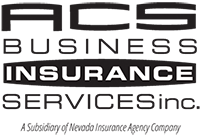Americans Who Don’t Buy Health Coverage Face Heftier Fine in ’16, Analysis Finds
Featured in The New York Times | By Abby Goodnough
WASHINGTON — Americans who remain uninsured in 2016 despite having the option of buying health coverage through an Affordable Care Act marketplace will owe an average tax penalty of $969 per household, a new analysis has found.
That amount is substantially higher than the average estimated penalty of $661 for those who went uninsured in 2015, according to the analysis by the Kaiser Family Foundation. But it remains to be seen how effective the rising fine will be in persuading the roughly 10.5 million uninsured Americans who are eligible for marketplace coverage to buy it.
The health law requires people without health insurance to either pay a penalty when they file taxes or to claim an exemption. Last year, the penalty was $95 per adult or 1 percent of household income, whichever was greater. This year it is rising to $325 per adult or 2 percent of household income, and for 2016, it will increase to $695 per adult or 2.5 percent of household income.
Open enrollment for 2016 started on Nov. 1, and this week the Obama administration began stepping up efforts to draw attention to the growing penalty for those remaining uninsured. In a blog post on Monday, Kevin Counihan, chief executive of the federal insurance marketplace, stressed that the penalty was increasing.
“I believe your best option is to learn about the tax credits that are available and to visit Healthcare.gov to enroll in a plan,” Mr. Counihan wrote.
He also announced that a special enrollment period around the April 15 tax filing deadline would not be offered in 2016, as it was this year.
The administration has walked a fine line over the penalty — while it may motivate people to sign up for health insurance, it is also reviled. Tracking polls conducted by the Kaiser Family Foundation have consistently found the requirement to have health insurance or pay a fine to be the most unpopular part of the health law.
“It’s a conundrum for the administration,” said Larry Levitt, a senior vice president of the foundation. “It might be a great way of getting people signed up, but the politics aren’t good.”
Despite the growing penalty, the Obama administration’s stated goal for enrollment in marketplace plans next year is modest. Sylvia Mathews Burwell, the secretary of health and human services, has predicted that 10 million people would have marketplace coverage by the end of 2016, up only about 100,000 from recent levels. Millions of uninsured people can qualify for exemptions from the penalty, mainly because they are too poor to afford health insurance or because they live in a state that refused to expand Medicaid under the health law. The Kaiser analysis estimates that 78 percent of people who are uninsured and eligible for marketplace plans will be subject to the individual mandate penalty if they remain uninsured in 2016, and the rest will qualify for exemptions.
The analysis also found that for about 3.5 million of the remaining uninsured, who would qualify for generous federal premium subsidies, it would cost less to buy the cheapest category of marketplace coverage than to pay the penalty. But it pointed out that that level of coverage comes with high deductibles — the amount people have to pay for medical care before their coverage kicks in.
Kaiser’s calculations did not include uninsured people who are eligible for health benefits through an employer.

